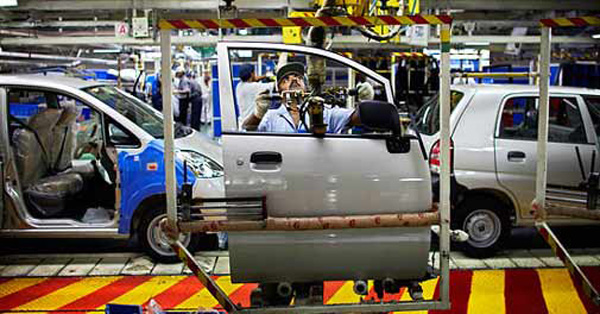-
Tips for becoming a good boxer - November 6, 2020
-
7 expert tips for making your hens night a memorable one - November 6, 2020
-
5 reasons to host your Christmas party on a cruise boat - November 6, 2020
-
What to do when you’re charged with a crime - November 6, 2020
-
Should you get one or multiple dogs? Here’s all you need to know - November 3, 2020
-
A Guide: How to Build Your Very Own Magic Mirror - February 14, 2019
-
Our Top Inspirational Baseball Stars - November 24, 2018
-
Five Tech Tools That Will Help You Turn Your Blog into a Business - November 24, 2018
-
How to Indulge on Vacation without Expanding Your Waist - November 9, 2018
-
5 Strategies for Businesses to Appeal to Today’s Increasingly Mobile-Crazed Customers - November 9, 2018
India, Japan Sign Defence Deals
Japan and India signed agreements Saturday that could pave the way for Tokyo to supply New Delhi with military aircraft and high-speed trains, as Prime Minister Shinzo Abe promised to fully support India’s efforts to become an economic powerhouse.
Advertisement
“The two prime ministers welcomed the agreement reached between the two governments on the agreement between the government of Japan and the government of the Republic of India for Cooperation in the Peaceful Uses of Nuclear Energy, and confirmed that this agreement will be signed after the technical details are finalised, including those related to the necessary internal procedures”, he said quoting that particular section of the joint statement issued following the talks between the two sides. The train will cut travel time on the 505 km route by 5 hours. The Modi government had a year ago allowed 100 per cent foreign direct investment in the railways, paving the way for collaboration with global firms for India’s high-speed rail programme. Modi said India and Japan would work together to promote maritime security in the region. The agreements included a civil nuclear pact, India’s first bullet train and a transfer of defence equipment and technology.
After the Modi-Abe talks, the two countries signed a broad-based MoU for cooperation in civil nuclear energy with the final pact to be signed after certain technical and legal issues are thrashed out.
“It is a shining symbol of a new level of mutual confidence and strategic partnership in the cause of a peaceful and secure world”, Modi said after the civil nuclear agreement which comes as a major boost to his pitch for clean and renewable energy to address climate change concerns.
The two sides also shared their intention to raise the level of their ambition through the establishment of joint research laboratories; enhanced exchanges between young scientists and those under “Japan-Asia Youth Exchange Program in Science”; the establishment of joint research centres in India in the field of ICT.
Thanking Abe for his support to India’s membership of the APEC, Modi said India will also strive for “our rightful place in a reformed UN Security Council”. Modi also announced that India in March will begin extending “visa on arrival” privileges to Japanese citizens in recognition of the two countries’ special relationship.
“Strong India is for the good of Japan and strong Japan is good for India, this is my basic tenet”, he said.
When asked how Japan would react if India conducted nuclear tests, Japan’s foreign ministry spokesperson Yasuhisa Kawamura said: “If India does a test… it will be quite natural for Japan to review its cooperation with India. Your visit, Mr. Prime Minister, is one”, Modi added.
India will be buying a Japanese high-speed train system, effectively with an export credit of $12 billion.
Modi said India values its special strategic and global partnership with Japan and it enjoys unmatched goodwill and political consensus in India.
China was in talks with India to jointly build a 1,754km track from New Delhi to Chennai that could cost 200 billion yuan (US$29.78 billion), the China Daily reported in November a year ago. India received $19.16 billion FDI from Japan during April 2000 and September 2015.
“In this context, Prime Minister Abe stressed the importance of early entry into force of the Comprehensive Nuclear Test Ban Treaty (CTBT) which should lead to nuclear disarmament”, the statement said. “I have been told that $11-12 billion fund has been earmarked for it. This clearly indicates how both the countries can move forward”, he said while addressing the India-Japan Business Leaders Forum in Delhi.
Advertisement
Foreign secretary S. Jaishankar inked two interlinked pacts with Japan’s new ambassador here, Kenji Hiramatsu, that both dramatically elevate defence ties.





























